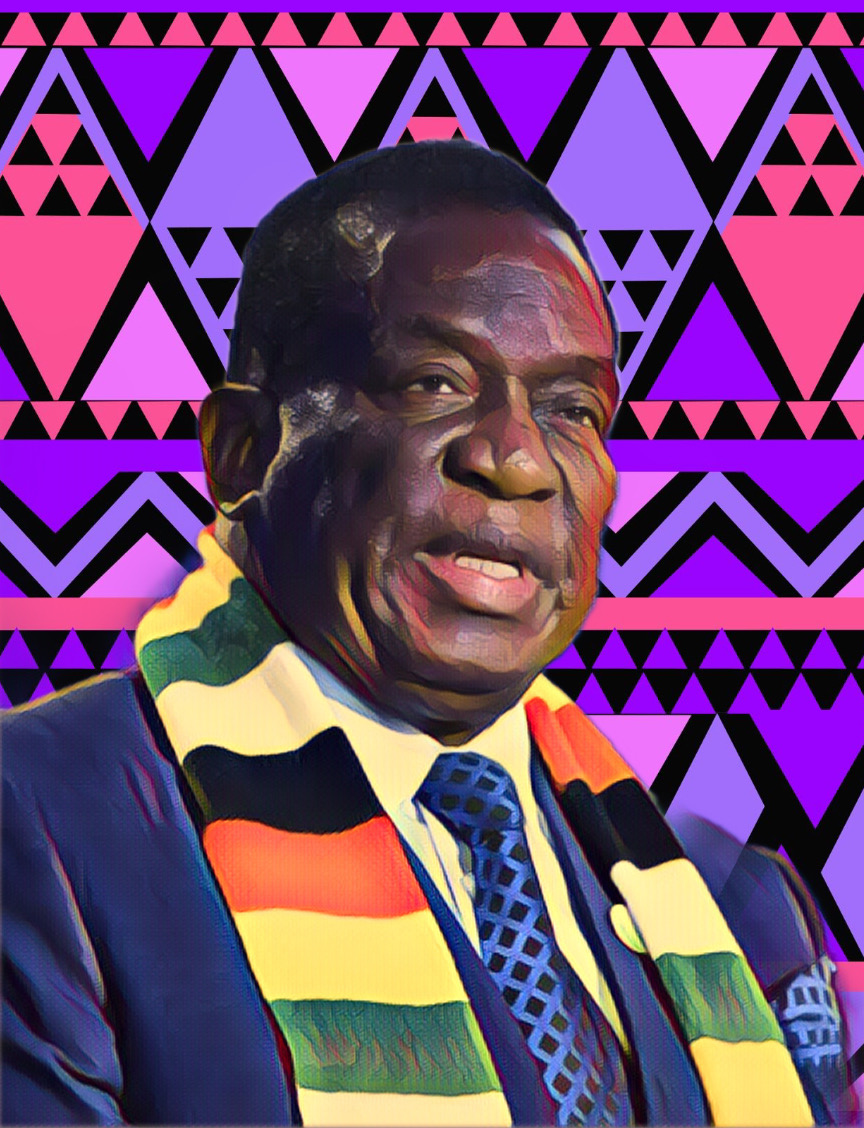The Zanu PF party in Zimbabwe is struggling with internal divisions as a faction within the party pushes for President Emmerson Mnangagwa to extend his tenure beyond the constitutionally mandated two terms. This campaign, symbolized by the “ED 2030” slogan, has left many of the party’s provincial chairpersons in a difficult position. They are uncertain whether to support this initiative, which could have significant repercussions for their political futures.
The ED 2030 slogan advocates for Mnangagwa to remain in power until 2030, despite his earlier commitment to step down at the end of his second term in 2028. The push has created a tense atmosphere within the party, as it raises questions about loyalty and the future leadership of Zanu PF.
Provincial chairpersons, particularly those in regions like Masvingo, Midlands, and Matabeleland North, are reportedly torn. These areas are known strongholds of Mnangagwa’s support base, and their leaders are feeling the pressure to endorse the ED 2030 agenda. However, the uncertainty surrounding Mnangagwa’s actual intentions and the potential for a new leader to emerge has left these chairpersons in a quandary.
Sources within Zanu PF have revealed that some party members are reluctant to chant the ED 2030 slogan. They argue that it is inappropriate to show loyalty to a leader who has publicly stated his intention to retire at the end of his term. This reluctance has created a rift within the party, as members fear the consequences of either supporting or opposing the slogan. On one hand, not showing allegiance could result in expulsion from the party; on the other, backing Mnangagwa’s extended rule could backfire if he is no longer in power by 2030.
Vice President Constantino Chiwenga, who is widely tipped as Mnangagwa’s likely successor, has not publicly endorsed the ED 2030 slogan. At a recent Zanu PF meeting, Chiwenga refrained from chanting the slogan, instead emphasizing the need for discipline to achieve the country’s 2030 vision, which aims to transform Zimbabwe into an upper-middle-income economy by that year. His decision not to chant the slogan has been interpreted by some as a sign of his disapproval of the push to extend Mnangagwa’s rule.
In what appeared to be a response to Chiwenga’s stance, Vice President Kembo Mohadi openly chanted the divisive slogan at the same meeting. “I don’t know if it is indiscipline that I have chanted the slogan, but our Constitution provides for freedom of expression,” Mohadi remarked, seemingly challenging Chiwenga’s earlier call for discipline.
This internal conflict has left many Zanu PF chairpersons unsure of which direction to take. The fear of backing the wrong faction in this power struggle is palpable, as the party’s leadership dynamics remain unclear. The stakes are high, and the chairpersons are caught in a precarious position as they try to navigate the competing agendas within the party.
Efforts to get a comment from Zanu PF’s national political commissar, Munyaradzi Machacha, were unsuccessful, as he did not respond to calls. However, Machacha recently acknowledged the presence of disputes within the party, as well as in opposition groups. Speaking at a re-orientation event for councillors organized by the Chitepo School of Ideology, Machacha admitted, “We have noticed that there are disputes in both the ruling party and opposition parties. The sons of Zimbabwe are fighting against each other, and in Zanu PF, there are frictions, [which is] the same with the opposition.”
Meanwhile, Zanu PF’s director of information and publicity, Farai Marapira, sought to downplay the divisions, insisting that the party remains united. “We never had divisions as Zanu PF; we have been united. As a party, we have conversations, ideas, and growth. The ideas are only grown by conversations,” Marapira said, attempting to project an image of cohesion within the party.
Despite these reassurances, the divisions within Zanu PF are becoming increasingly evident. The ED 2030 slogan has emerged as a flashpoint in the ongoing power struggle within the party. Supporters of the slogan, including key figures like Midlands Provincial Affairs Minister Owen Ncube and Zanu PF’s secretary for legal affairs, Patrick Chinamasa, have been vocal in their support for extending Mnangagwa’s term. Their public endorsement of the slogan has fueled speculation that there may be maneuvers underway to ensure Mnangagwa remains in office beyond 2028.
However, not all party members are on board with this agenda. Former Zanu PF national political commissar, Mike Bimha, has previously stated that the “2030, vaMnangagwa vanenge vachipo” slogan is not officially recognized within the party. This stance highlights the ongoing debate within Zanu PF about the future direction of the party and its leadership.
Political analysts have expressed concern that Mnangagwa could lose control of Zanu PF as his final term progresses. The prospect of a leadership transition is likely to intensify the internal power struggles within the party. Clionadh Raleigh, a professor of Political Violence and Geography at the University of Sussex, noted that the end of Mnangagwa’s reign could lead to fierce competition among Zanu PF elites, with each faction seeking to secure loyalty and influence in anticipation of the next leadership change.


